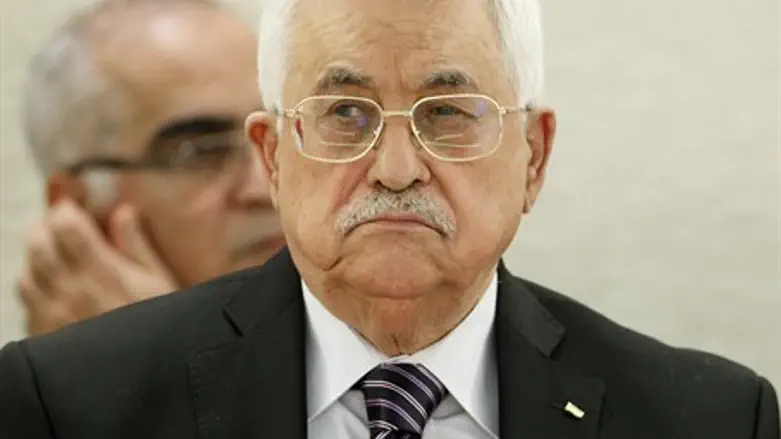
Palestinian Authority (PA) chairman Mahmoud Abbas has quietly established a constitutional court in attempt to maintain power and allow him to sideline Hamas in the event of a succession struggle, Reuters reported on Monday.
The nine-member body, which will have supremacy over all lower courts, was created without fanfare by presidential decree on April 3 and was inaugurated on Monday, officials told the news agency.
Critics say the body is packed with jurists from Abbas's Fatah party and risks deepening Palestinian political divisions.
Fatah, for its part, says it is Abbas's right to create the court, which it says is independent of him.
"Neither the president nor any of the leaders (of Fatah) has a private agenda regarding this issue," Osama al-Qwasmi, the spokesman for Fatah, told Reuters, adding, "The prime task of the constitutional court is to monitor laws. By the law, it is a completely independent body and we have full confidence in it."
Abbas's decision comes at a time of worsening splits between Fatah and Hamas, which have been at odds with one another since 2007, when Hamas took over Gaza from Fatah in a bloody coup.
The sides have continued their never-ending war of words despite a unity agreement signed in April 2014 which sought to end seven years of bad blood.
A unity government between Hamas and Fatah collapsed last June when Abbas decided to dissolve it amid a deepening rift between the sides.
The new constitutional court also comes as questions are raised about what will happen when Abbas steps down or if he were to die in office without a successor.
Abbas took office after the death of Yasser Arafat in 2004, and was elected to a four-year term in 2005, but new elections were not held in 2009 and he continues to govern by decree, noted Reuters. Parliament has not sat since 2007.
In theory, the speaker of parliament, a Hamas member, would take over as president on an interim basis were Abbas to die in office, although Fatah disputes whether that remains constitutional.
While Abbas may have the authority to create the court, which is being established 14 years after the Palestinians drafted a basic law, a form of constitution, some analysts see it as a way of circumventing opposition at a critical time.
"It's a blatant power grab at a time when he knows he can get away with it," Grant Rumley, a research fellow at the Foundation for Defense of Democracies in Washington, DC, told Reuters on Monday.
"From Abbas's standpoint, this is his way of both thwarting his rivals in Hamas and securing his Fatah party's hold on the Palestinian Authority once he is gone," Rumley added.
Palestinian commentators also see the court, whose decisions would be binding on the executive, the legislature and the judiciary, as a means of bolstering Abbas’s authority and marginalizing Hamas. Reuters noted that all nine members of the court are either Fatah members or seen by Hamas and others as being allied with Fatah.
"This is a factional court," Hamas spokesman Sami Abu Zuhri said, arguing that it gave Abbas the ability to sidestep parliament - if the current one ever sits again - or if a new parliament is eventually elected.
Abbas's legal adviser, Hassan al-Awry, said the court was needed in part because parliament's legal status was in question given the lack of elections.
"It is not a shame if the constitutional court would debate this issue," he told Reuters, adding that the justices on the court were all legal experts and independent. "We want a judicial reference should such an issue be brought up."